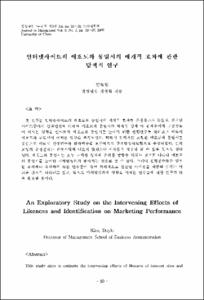日本의 農村工業開發과 波及效果
- Alternative Title
- The Development of Rural Industries in Japan and Its Diffusion Effects
- Abstract
- 本稿는 日本의 農村工業化의 經緯, 政策 및 그 波及效果에 대해서 檢討하였으며, 다음과 같은 結論?? 到達하였다.
(1) 日本의 農材工業化는 高度成長에 依한 大都市의 過密化問題를 解決하기 爲해서 試圖되었으며, 또한 그것은 高度成長과 倂行하여 長期問에 걸친 政府와 地方公共團體의 各種支援下에 大企業의
分工場 및 下請工場이 農材地域에 進出함으로써 이루어졌다.
(2) 日本의 農材工業化는 農家階層間 所得格差와 都·農間 所得隔差縮小에 큰 役割을 하였다. 그러나 農村勞動力의 老齡化, 婦女化, 兼業農의 增加로 因한 晨業生産性의 低下, 産業公害의 農村擴散 等, 否定的 效果도 크다.
(3) 日本의 農村工業開發은 農業構造改善이라는 元來目標를 達成하지 못했다.
(4) 日本의 農村工業開發의 經驗은 韓國의 農村工業開發을 爲한 政策樹立에 좋은 敎訓이 될 것이다.
This treatise aims to examine the complicated circumstances, policies and diffusion effects of rural industrialization in Japan. The findings are as follows:
(1) Rural industrialization in Japan was attempted to solve overpopulated city problems raised by her high economic growth. And it was accomplished through the advance of the branch factories and subcontract factories of large firms into rural areas under varieties of long-pending supports by government and local public entities, along with keeping pace with her high economic growth.
(2) Rural industrialization in Japan has made an important contribution to reduction of income differentials not only between high and low bracket in rural but also between urban and rural area. But it has also brought about many negative effects what is called, gerontization and feminization of farm workers, the decrease of agricultural productivity resulted from the increase farmers having subsidiary jobs, and diffusion of industrial pollution into rural areas, etc.
(3) They could not accomplish, their original purpose the improvement of agricultural structure through the development of rural industries in Japan.
(4) Some experiences obtained from the development of rural industries in Japan will become a good lesson in policy-making for the development of rural industries in Korea.
This treatise aims to examine the complicated circumstances, policies and diffusion effects of rural industrialization in Japan. The findings are as follows:
(1) Rural industrialization in Japan was attempted to solve overpopulated city problems raised by her high economic growth. And it was accomplished through the advance of the branch factories and subcontract factories of large firms into rural areas under varieties of long-pending supports by government and local public entities, along with keeping pace with her high economic growth.
(2) Rural industrialization in Japan has made an important contribution to reduction of income differentials not only between high and low bracket in rural but also between urban and rural area. But it has also brought about many negative effects what is called, gerontization and feminization of farm workers, the decrease of agricultural productivity resulted from the increase farmers having subsidiary jobs, and diffusion of industrial pollution into rural areas, etc.
(3) They could not accomplish, their original purpose the improvement of agricultural structure through the development of rural industries in Japan.
(4) Some experiences obtained from the development of rural industries in Japan will become a good lesson in policy-making for the development of rural industries in Korea.
- Issued Date
- 1985
- Type
- Research Laboratory
- Alternative Author(s)
- Chang,Byung-Ik
- Publisher
- 연구논문집
- Language
- kor
- Rights
- 울산대학교 저작물은 저작권에 의해 보호받습니다.
- Citation Volume
- 16
- Citation Number
- 2
- Citation Start Page
- 359
- Citation End Page
- 375
- Appears in Collections:
- Research Laboratory > University of Ulsan Report
- 파일 목록
-
-
Download
 000002024624.pdf
기타 데이터 / 489.66 kB / Adobe PDF
000002024624.pdf
기타 데이터 / 489.66 kB / Adobe PDF
-
Items in Repository are protected by copyright, with all rights reserved, unless otherwise indicated.